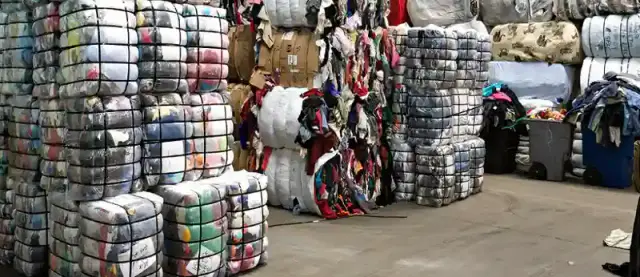HARARE – The Zimbabwean government has announced an immediate ban on the importation and sale of second-hand clothing, popularly known asmabhero, along with a crackdown on street vending and night-time trading in cities and towns Local Government and Public Works Minister Daniel Garwe made the announcement on Monday, August 4, during a meeting with Harare City Councillors at Town House “I want to make it clear that government has banned the importation and selling of second-hand clothing,” said Garwe “As a result, all street vending and night vending activities are now prohibited with immediate effect.”
He emphasized that local authorities must move swiftly to enforce the directive, stating, “The City of Harare is directed to work closely with law enforcement agencies to ensure there is no further vending on the streets or at night
The time to act is now — not tomorrow.”
The announcement marks the latest attempt by the government to restrict the influx of used clothes into the country A similar ban was implemented in 2015 but was lifted two years later in 2017 following strong resistance from informal traders and the general public That reversal came with the introduction of import duties instead However, enforcing the new ban may prove to be a major challenge
Zimbabwe’s informal economy remains dominant, with recent ZimStat figures indicating that 76 percent of the economy operates outside formal structures Additionally, 88 percent of the country’s workforce is informally employed — many relying on vending and second-hand clothing sales for survival Despite the strict-sounding directive, Garwe insisted that enforcement should not involve harassment of vendors “There is absolutely no need to be aggressive
Authorities should not use force or heavy-handed tactics,” he said The ban threatens to disrupt the livelihoods of thousands of urban Zimbabweans who depend on vending, particularly the sale of affordable second-hand clothes, to make ends meet in the face of high unemployment and economic instability The second-hand clothing trade, known for offering low-cost alternatives to expensive retail clothing, has become a staple of urban markets Many Zimbabweans flock to these stalls, where items such as jeans, jackets, and shoes can be bought for just a few dollars
Street vending has also become a common sight in most cities, with pavements and bus termini transformed into informal marketplaces Meanwhile, night-time vending has surged in popularity, as traders take advantage of reduced council patrols to operate under the cover of darkness — often with fewer disturbances from authorities Source: Zimeye
All Zim News
All Zim News is a central hub for all things Zimbabwean, curating news from across the country so no story is missed Alongside aggregation, our team of nationwide reporters provides real-time, on-the-ground coverage
Stay informed and connected — reach us at admin@allzimnews.com.
Source: Zimeye
